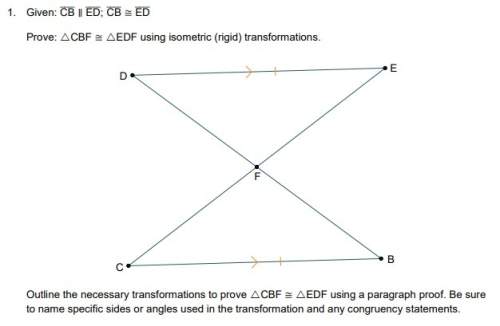
Mathematics, 19.03.2020 22:52 LilTJSavage22
Given $m\geq 2$, denote by $b^{-1}$ the inverse of $b\pmod{m}$. That is, $b^{-1}$ is the residue for which $bb^{-1}\equiv 1\pmod{m}$. Sadie wonders if $(a+b)^{-1}$ is always congruent to $a^{-1}+b^{-1}$ (modulo $m$). She tries the example $a=2$, $b=3$, and $m=7$. Let $L$ be the residue of $(2+3)^{-1}\pmod{7}$, and let $R$ be the residue of $2^{-1}+3^{-1}\pmod{7}$, where $L$ and $R$ are integers from $0$ to $6$ (inclusive). Find $L-R$.

Answers: 1


Other questions on the subject: Mathematics

Mathematics, 21.06.2019 17:30, iliketurtures
In parallelogram abcd the ratio of ab to bcis 5: 3. if the perimeter of abcd is 32 find ab
Answers: 1


Mathematics, 21.06.2019 22:10, goodygoodgirlygirl
Akitchen is 12 ft. by 14 ft. with 10 ft. high walls. how much would it cost to put vinyl flooring in this room? $8.80 per ft
Answers: 1

Mathematics, 21.06.2019 22:30, jedsgorditas
Collin did the work to see if 10 is a solution to the equation r/4=2.4
Answers: 1
You know the right answer?
Given $m\geq 2$, denote by $b^{-1}$ the inverse of $b\pmod{m}$. That is, $b^{-1}$ is the residue for...
Questions in other subjects:

History, 28.07.2019 04:33



Mathematics, 28.07.2019 04:33


History, 28.07.2019 04:33



Biology, 28.07.2019 04:33





